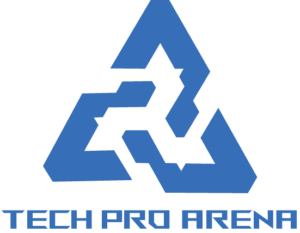
I take a lot of photos of cars. Whether it’s one of mine, a car in a showroom, cars at shows or meets I attend, or even cars when I’m in a different city. I do have a bit of an obsession. However, I’m not at all sure I am very good at taking photos of cars, as I usually end up taking the same old shot and struggle to think more creatively.
When a design-led electric car was loaned to me for a week, I decided it was time I addressed the problem head-on. I ended up learning plenty, but four key pieces of advice I was given left the biggest impression — and will change the way I take photos of cars in the future.
Different car, same photos
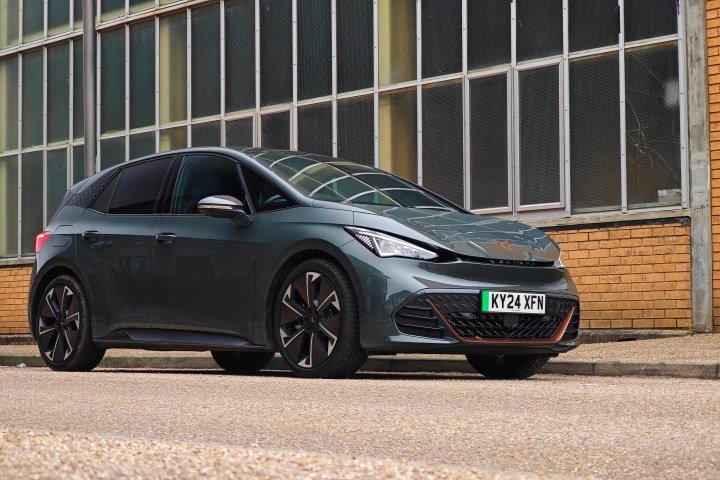
The U.K. weather looked unpredictable when the Cupra Born VZ arrived, and as I needed a lot of photos to accompany a story on living with an EV, and my review of the car, I immediately set out to get some “in the can.” I decided to use the Xiaomi 14 Ultra as I wanted to showcase a phone’s camera rather than my DSLR, and also wanted the flexibility of different telephoto zooms, plus the chance to use a polarizing filter.
I’m not unhappy with the photos I took on my day out. I managed to find what I considered good locations to show off the vehicle’s lines and individual details. But I still encountered the same old problems, where I’d default to certain positions or angles. I could see the details I wanted to photograph and the angles I thought might work, but my brain couldn’t quite connect the dots between seeing and doing.
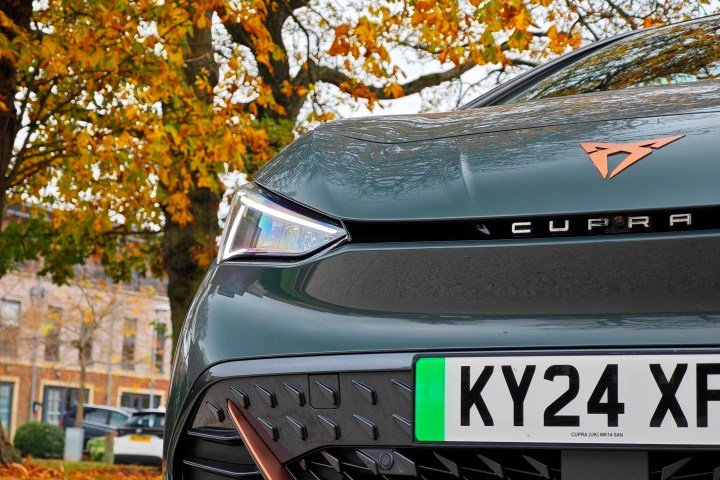
It’s not that I wasn’t thinking about taking photos that showcased the Born VZ in a new way; it was more that I couldn’t work out how to do it. I’d find out later that I was stuck thinking there was a “right way” to take a photo, and therefore dismissing what my brain thought were “wrong” photographs.
I was stifling my own creativity without actually knowing it. With the Xiaomi 14 Ultra’s gallery filled with photos of the Born VZ, I returned home and set up a meeting for a few days time with automotive photographer Chris Kaye.
Getting the basics right
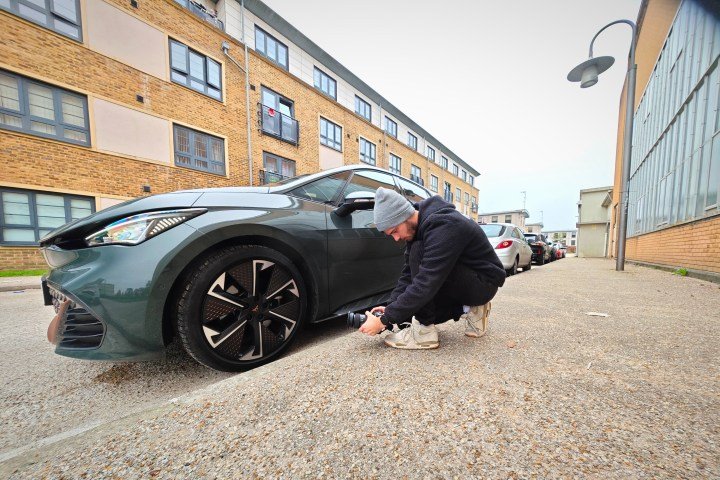
Kaye has been photographing cars for around five years, and although he calls himself an amateur, it is also an aspect of his day job, and the shots on his Instagram have that “look” that I often wish I could find. I asked him about his approach to photographing cars.
“I try to take some time to walk around the car without using my camera,” he told me before we met up, “just admire the lines and design of the car to really get to know and understand what the designers were trying to achieve. I’ll warm up by getting the ‘standard’ angles — front three-quarter, rear three-quarter, and the side view — before diving deeper into the details and more advanced angles you don’t typically see. The beauty of photography is how you perceive something. You’ll be surprised at how differently two photographers would shoot the same car in the same location.”
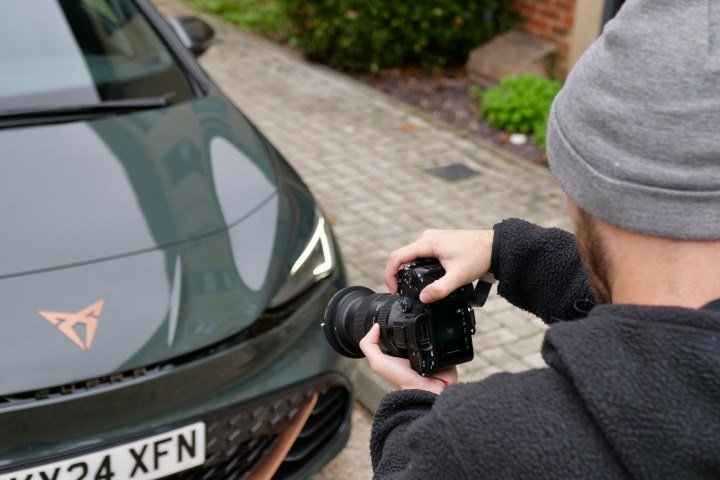
We also discussed some of the basics and then one piece of advice he’d give to beginners.
“Always use a Circular Polarising Filter (CPL) when shooting cars,” he said. “It cuts reflections and unwanted glare in the paintwork and windscreen. When I started photography, I wish I had bought a CPL, as looking back at some of my photos, compositionally they aren’t bad, but the impact is reduced by ugly glare.”
I also wanted to learn more about the importance of choosing the right location.
“Location is always an interesting one to me. Sometimes I have control over where a car will be shot, but mostly not. If I have the ability to choose, I always consider what impact do I want the background to have? Do I want it to be generic, do I want it to be an integral part of the shot, or for the landscape to conflict with the car to create a juxtaposition?”
Looking at the Cupra Born VZ with new eyes
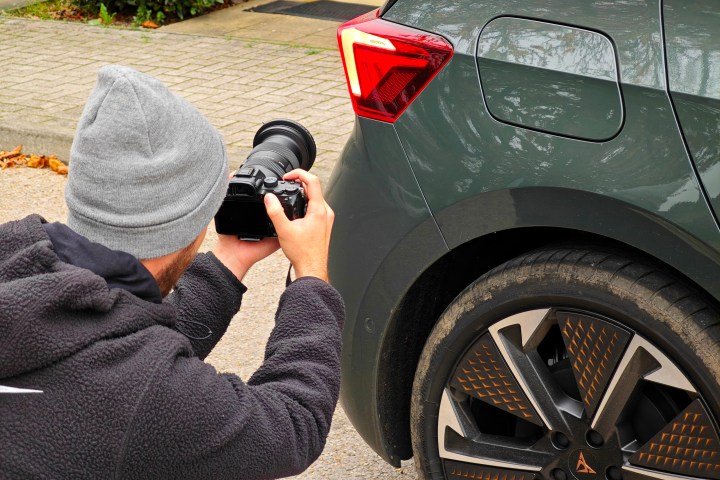
Over the years I’ve read a lot about how to take “better” photos, and watched many videos from experts talking about how to get the shot you want, but the advice has never stuck. I met Kaye at our pre-agreed location, an industrial area near Farnborough airport in the southeast of the U.K., early on a Sunday morning, keen to understand if something more practical would have the desired effect.
We spent some time chatting about cars, the Born VZ, and the art of taking photos before we decided to actually take some shots. More than anything, I wanted to observe to see what Kaye did differently to me, and I was immediately surprised at the difference in his style from mine. Over the next hour or so, I began to better understand where my creative brain had stalled and how I could work on breaking free of my self-imposed restrictions.
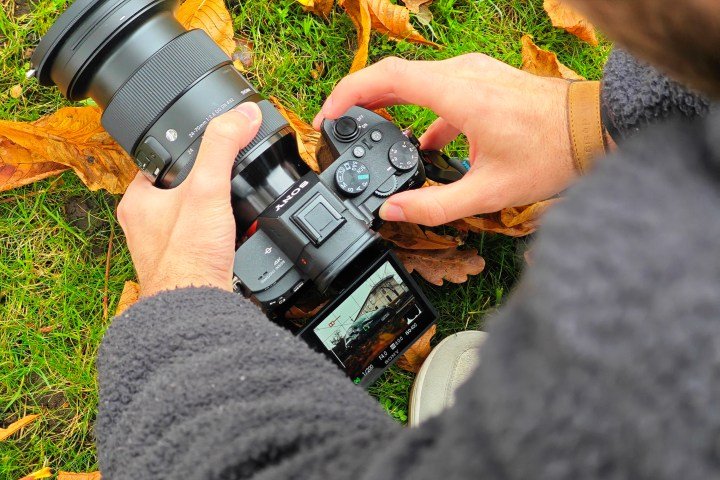
When we finished up and I was driving home, I thought about the key lessons I’d learned from my time with Kaye. While our conversation had been extensive, there were four key takeaways for me, with two really standing out as part of my problem. The more I thought about it, the more I knew I’d learned about how to potentially change my own photos in those few hours than I had in the last few years.
The four lessons
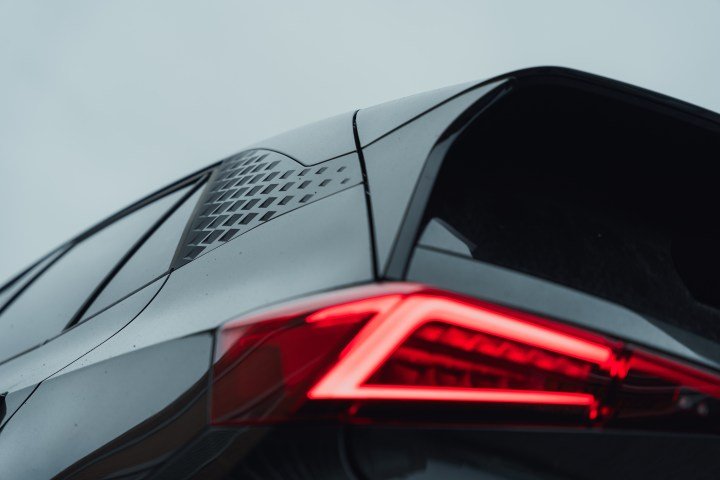
You’ve got to move. Watching Kaye take photos of the Born VZ immediately highlighted something I don’t do, and that’s move around. I’m not only talking about left to right, up close or far away, but up and down too, and even to the extreme if there’s the opportunity. Kaye used his camera with arms stretched out above him, with the lens on the ground and in all variations in between.
I’m entirely guilty of making little movements and not experimenting enough with “extreme” angles or poses, but I could see that’s where some special shots lie. Kaye reminded me that we all normally see things from basically the same viewpoint, so breaking away from it lets the viewer see the subject in a new way. It’s advice I’d heard before, but seeing it in action really changed my perception of what it meant.
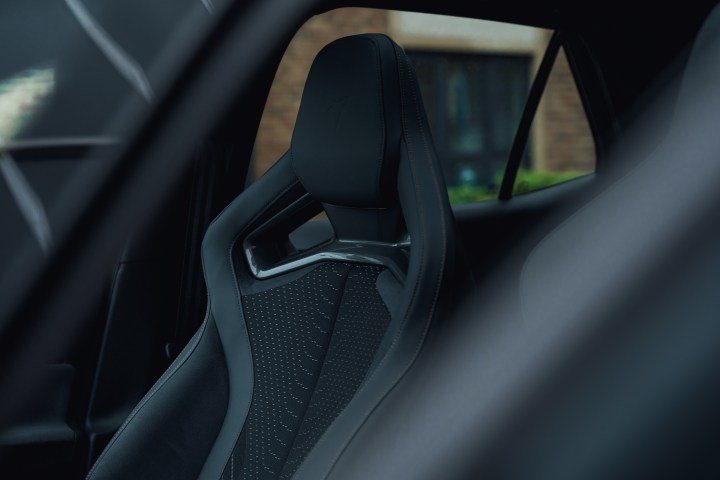
Use the environment. I’ve long tried to understand and experiment with framing but couldn’t break out of that mindset of doing things “right.” I watched as Kaye slightly opened the door of the Born VZ and used it to frame a shot of the steering wheel and dashboard. He stood back and used a tree trunk to frame the front of the car and also got down low (demonstrating the movement I described previously) to include a bright background in his shot of the tail lights.
Another thing I took away from simply observing is how Kaye looked around the subject rather than only at the subject. It’s how he saw the colored background, the lines in the window of a building, how he used a gap in the car seat to photograph the steering wheel, and how opening the car door would create an attractive reflection in the window. I discovered I was too rigid and too fixed in my approach.
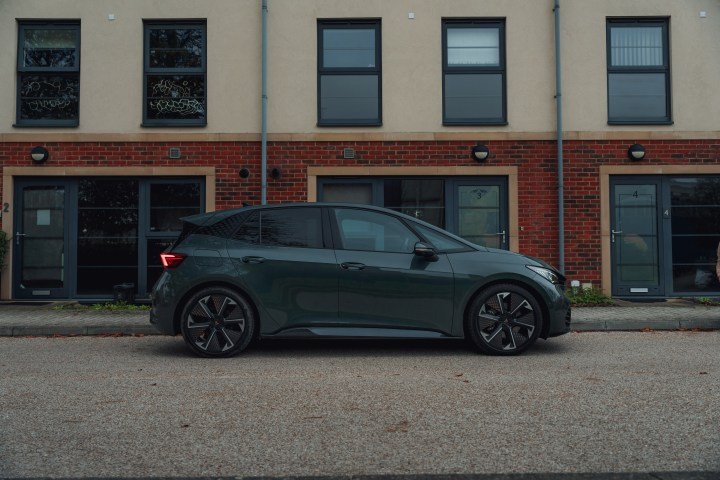
Location matters, but not in the way you think. The location we chose was great, but it came with its own set of problems, such as unexpectedly requiring permission to use certain areas. Eliminating street clutter, parked cars, and the reality of shooting in an uncontrolled environment was also very hard.
Kaye explained it helped to have the car in a setting that didn’t look like we just parked up, or if we had to do that, try to find backgrounds that add something to the shot. In an ideal world, he preferred a location where he could physically move around the car more, minimizing the need to change the car’s position.
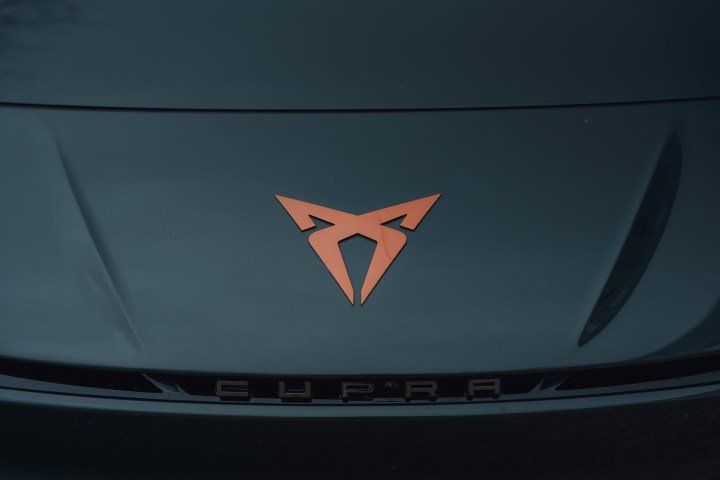
There is no right or wrong. During our time taking photos of the car, I brought up my mindset of taking a photograph in the “wrong” way, and Kaye’s response was to casually remind me there is no right or wrong. If the photo works, it works. If it doesn’t, there’s no harm. I’d become so fixated on trying to get the “right” angle or framing that I’d stopped experimenting. Kaye’s kinetic, active way of photographing the car hammered this point home.
We’re fortunate enough to have phones that can store a massive amount of photographs without ever needing to delete any. On the drive home, I understood that not only should I take more photos but I should also do so at far more varied angles and in different positions, using everything around the subject and the subject itself to create and frame a shot. Then, just take photos. It sounds so silly, but it was a turning point in my mindset.
Putting it all into practice
While Kaye was photographing the Born VZ, I shadowed him, attempting to emulate the shots he was choosing rather than looking specifically for my own, different ones. In the same way as learning to dance, it was about learning new movements and feeling comfortable doing them. I’d hit a wall with my car photography, and I was thinking much too hard about how to make improvements, when that was not really what I needed to do at all.
What I needed was to stop thinking so much and look a lot more. Lower the camera, look around, get in close, take a step back, and start having fun without restraint. My approach to photographing cars was exactly that: restrained. With Kaye’s help, I’d found out that what I needed to get out of my rut was to free myself. Sounds simple, but it’s not when you don’t understand why you’re in a rut in the first place. I have a feeling everything I learned applies to any form of photography, too.
When I looked at the selection of photos Kaye sent me later on, I could also see where I was still “closed” in my shots by comparison, and they showed me I still have plenty to learn before I am creatively freed. Photography, like cars, is a hobby for me, and I came away from my time with the Cupra Born VZ and meeting up with Kaye, appreciating them both in new and entirely different ways.
















